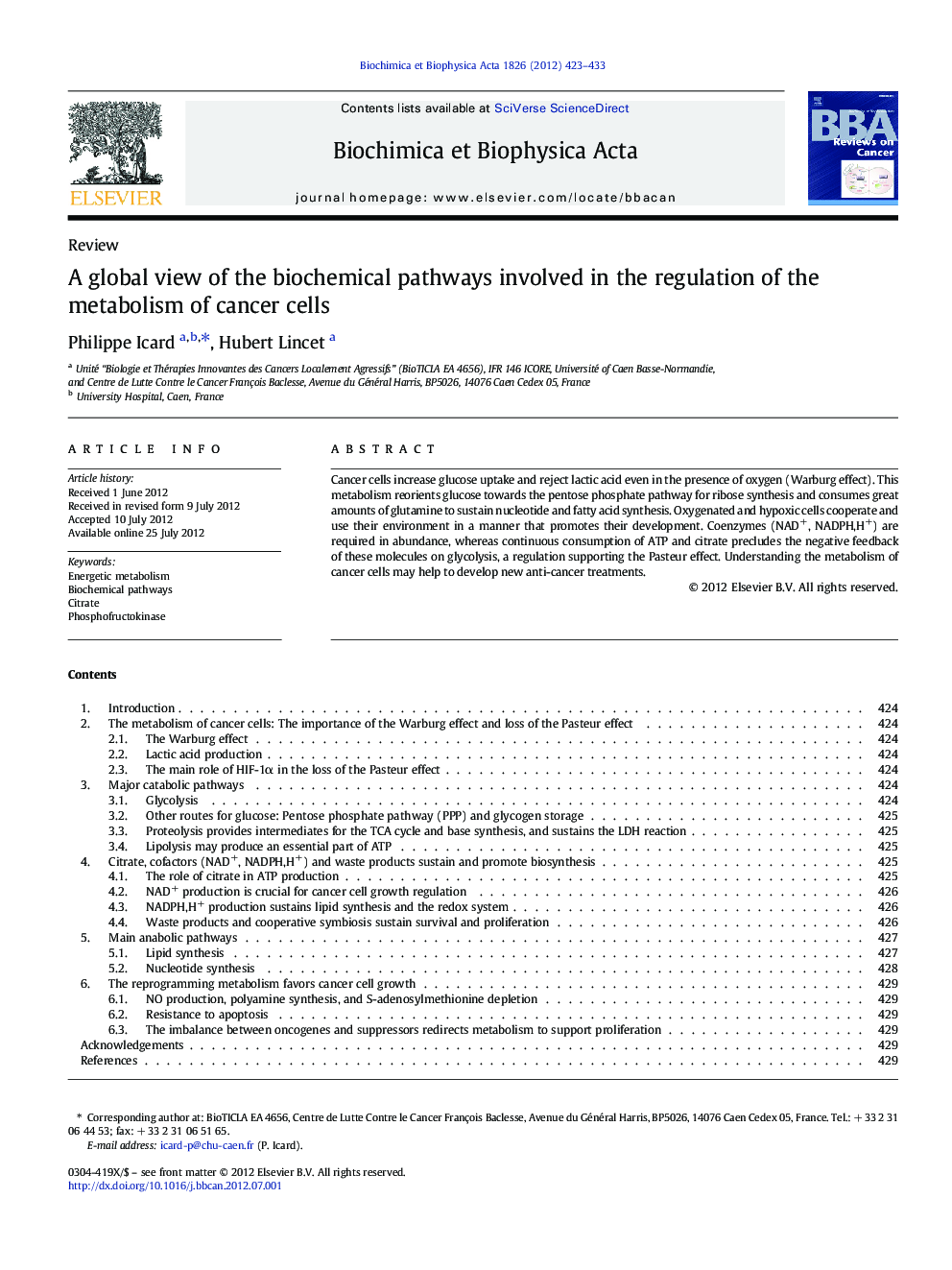| Article ID | Journal | Published Year | Pages | File Type |
|---|---|---|---|---|
| 8429522 | Biochimica et Biophysica Acta (BBA) - Reviews on Cancer | 2012 | 11 Pages |
Abstract
Cancer cells increase glucose uptake and reject lactic acid even in the presence of oxygen (Warburg effect). This metabolism reorients glucose towards the pentose phosphate pathway for ribose synthesis and consumes great amounts of glutamine to sustain nucleotide and fatty acid synthesis. Oxygenated and hypoxic cells cooperate and use their environment in a manner that promotes their development. Coenzymes (NAD+, NADPH,H+) are required in abundance, whereas continuous consumption of ATP and citrate precludes the negative feedback of these molecules on glycolysis, a regulation supporting the Pasteur effect. Understanding the metabolism of cancer cells may help to develop new anti-cancer treatments.
Related Topics
Life Sciences
Biochemistry, Genetics and Molecular Biology
Cancer Research
Authors
Philippe Icard, Hubert Lincet,
